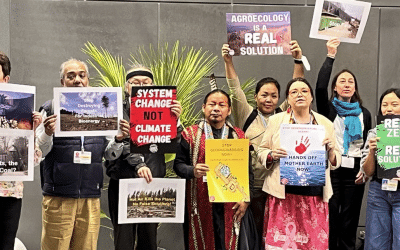As the debate around solar geoengineering heats up, we’re putting the spotlight onto The Degrees Initiative, a UK-based organisation that is “dedicated to putting the Global South at the centre of the Solar Radiation Modification (SRM) conversation.” Its stated mission is to “change the global environment in which SRM is evaluated” by “building the capacity of developing countries” to research and evaluate solar geoengineering deployment.
However, our examination of The Degrees Initiative, published on our website today, shows that its decision-making structures and funding sources are dominated by North American and European elites. Rather than supporting scientists based in the Global South to conduct the research that they would choose to prioritise in terms of how climate change affects the regions that they live in, it is imposing its own agenda onto academic research in the Global South.
This has resulted in a highly-problematic research methodology that predominantly models the deployment of Stratospheric Aerosol Injection (SAI) against a backdrop of worst-case greenhouse gas emission scenarios, which risks casting solar geoengineering—and in particular SAI—in a favourable light and distorting the likely impacts of solar geoengineering deployment on countries in the Global South.
In the same way that the fossil fuel industry has for decades used greenwashing to legitimise its lack of climate action, The Degrees Initiative is Global Southwashing research into SRM in order to legitimise it in parts of the world that are generally strongly opposed to geoengineering on climate justice grounds.
At the same time, the research that the Initiative supports contributes to a political framing favoured by geoengineering proponents which weighs up a narrow range of possible impacts of large-scale geoengineering deployment against the risks of unmitigated and therefore catastrophic climate change. This ignores the broad spectrum of ecological, social and geopolitical risks that SRM entails, and is therefore likely to present solar geoengineering as a viable option for the Global South. This will divert attention away from the urgent, real and deep emissions reductions that are the only way to avoid the worst impacts of climate change.
Read our briefing in full in English or Spanish, and please help us to publicise this work by sharing it on social media and throughout your networks.



